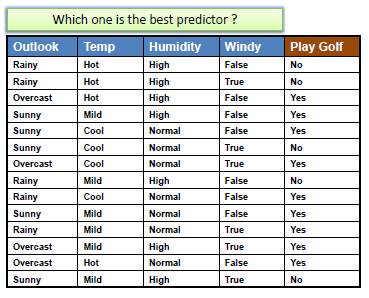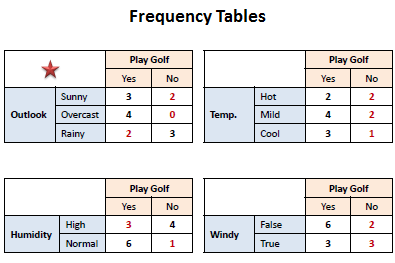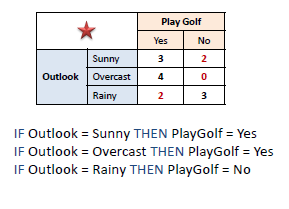OneR
For each value of that predictor, make a rule as follows;
Count how often each value of target (class) appears
Find the most frequent class
Make the rule assign that class to this value of the predictor
Calculate the total error of the rules of each predictor
Choose the predictor with the smallest total error.



Predictors Contribution
Simply, the total error calculated from the frequency tables is the measure of each predictor contribution. A low total error means a higher contribution to the predictability of the model.
Model Evaluation
The following confusion matrix shows significant predictability power. OneR does not generate score or probability, which means evaluation charts (Gain, Lift, K-S and ROC) are not applicable.
| Confusion Matrix | Play Golf | ||||
| Yes | No | ||||
| OneR | Yes | 7 | 2 | 0.78 | |
| No | 2 | 3 | 0.60 | ||
| Sensitivity | Specificity |
Accuracy = 0.71 |
|||
| 0.78 | 0.60 | ||||
| Exercise |  |